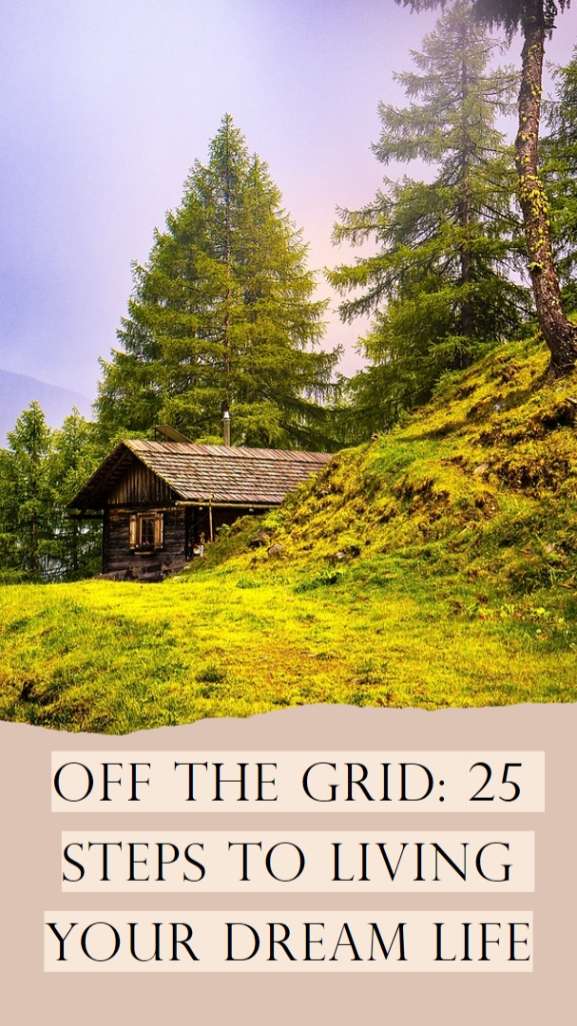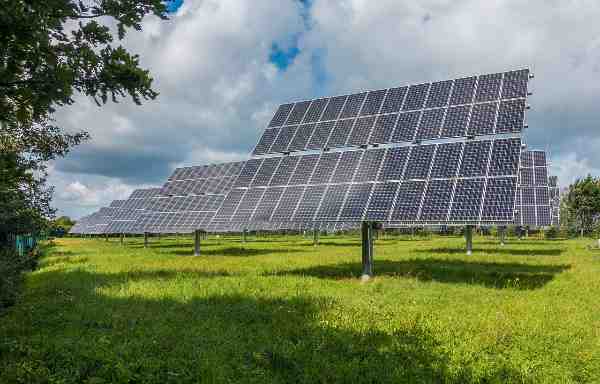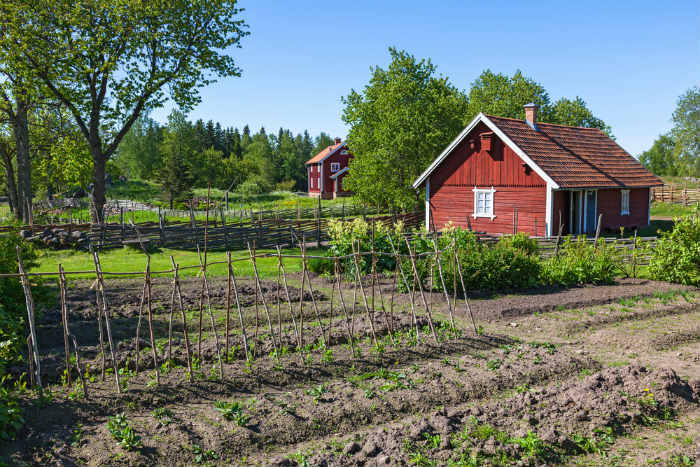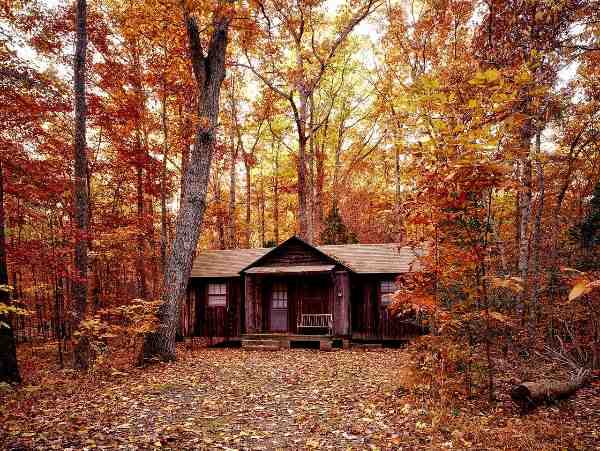Off the Grid: 25 Steps to Living Your Dream Life

Make sure to like Living Green and Frugally on Facebook, Shop at Amazon to help support my site and explore our PINTEREST BOARDS for innovative ways you can become self-sufficient.
In a world dominated by bustling cities, fast-paced careers, and constant connectivity, the notion of quitting your job, going off-grid, and living the dream might sound like an impossible fantasy.
However, for many, it’s a desire that speaks to a longing for simplicity, self-reliance, and a deeper connection with nature. Whether you’re dreaming of a secluded cabin in the woods or a homestead on the plains, making the leap to an off-grid lifestyle requires careful planning, dedication, and a willingness to embrace change.
Here are 25 tips to help you navigate this transformative journey:
1. Clarify Your Vision:
Before taking the plunge, define what “living the dream” means to you. Is it about self-sufficiency, being closer to nature, or seeking solitude? Understanding your motivations will guide your choices.
2. Research Thoroughly:
Learn about off-grid living by reading books, blogs, and joining online communities. Understand the challenges and requirements of living off the grid.
3. Water Source:
Ensure access to a reliable water source, whether through wells, springs, rainwater harvesting, or nearby streams. Water is crucial for off-grid living.

4. Location Matters:
Choose your location wisely. Consider climate, access to resources, land prices, and local regulations. Visit potential areas to get a feel for the environment.
5. Financial Planning:
Save money before making the move. Establish a budget that covers land purchase, construction costs, ongoing expenses, and emergency funds.
6. Start Small:
Begin with a simple setup. Consider a tiny home or a smaller piece of land initially. You can always expand as you become more comfortable with the lifestyle.
7. Learn Necessary Skills:
Develop skills like gardening, woodworking, basic construction, and off-grid energy management. These skills will be invaluable in your new life.
8. Energy Independence:
Invest in renewable energy sources like solar panels, wind turbines, or hydroelectric power to meet your energy needs.

9. Waste Management:
Implement eco-friendly waste disposal systems such as composting toilets and recycling methods to minimize your environmental impact.
10. Backup Plans:
Always have backup systems in place for essentials like power, water, and food supplies to tackle unforeseen challenges.
11. Stay Connected:
Even off the grid, staying connected with the world is important. Invest in communication tools like satellite phones or internet solutions if needed.
12. Community Engagement:
Engage with the local community. Building relationships with neighbors can provide support and shared resources.
13. Legal Considerations:
Understand local laws and regulations regarding land use, building codes, and property rights before making any commitments.
14. Healthcare Access:
Ensure access to healthcare facilities or have a plan in place for emergencies.
15. Grow Your Own Food:
Start a garden and learn about permaculture. Growing your own food can significantly reduce dependency on outside resources. Learn more about growing food for you and your family

16. Prepare for Change:
Be prepared for a lifestyle change. Adaptability and resilience are key to thriving in an off-grid setting.
17. Test Before Committing:
Consider a trial period. Rent an off-grid property or volunteer on a farm to experience the lifestyle before making a permanent move.
18. Document Your Journey:
Keep a journal or start a blog to document your experiences. It can be therapeutic and helpful for others considering a similar path.
19.Continual Learning:
Embrace a mindset of continual learning. The learning curve in off-grid living is steep, but it can be incredibly rewarding.
20. Self-Care:
Prioritize self-care. Living off-grid can be physically demanding, so ensure you take time to recharge and relax.
21. Prepare for Loneliness:
Off-grid living might mean less social interaction. Be prepared for moments of solitude and find ways to enjoy them.

22. Celebrate Milestones:
Acknowledge your achievements along the way. Celebrate milestones, no matter how small.
23. Stay Flexible:
Remain open to change and evolution. Your off-grid life will likely evolve over time, and flexibility is key to adapting.
24. Seek Guidance:
Don’t hesitate to seek advice from experienced off-gridders or professionals in various fields related to sustainable living.
25. Patience is Key:
Rome wasn’t built in a day, and neither is an off-grid lifestyle. Be patient with yourself and the process.
Embarking on an off-grid lifestyle is a profound and life-altering decision. It requires careful planning, adaptability, and a deep passion for a simpler, more self-reliant way of life. By considering these 25 tips, you’ll be better equipped to navigate the challenges and rewards of quitting your job, going off-grid, and truly living the dream.